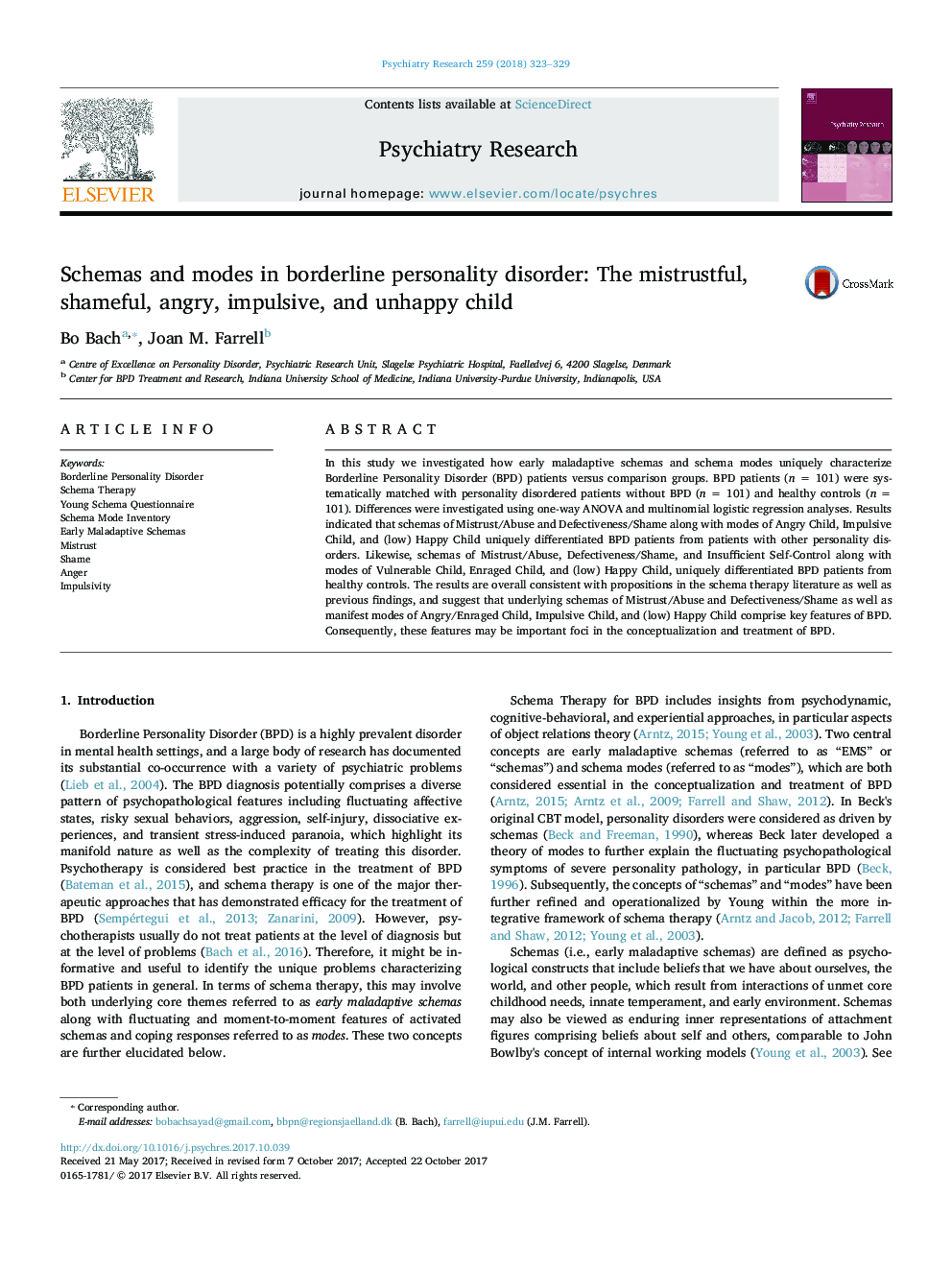| کد مقاله | کد نشریه | سال انتشار | مقاله انگلیسی | نسخه تمام متن |
|---|---|---|---|---|
| 6811996 | 1433787 | 2018 | 7 صفحه PDF | دانلود رایگان |
عنوان انگلیسی مقاله ISI
Schemas and modes in borderline personality disorder: The mistrustful, shameful, angry, impulsive, and unhappy child
ترجمه فارسی عنوان
طرح ها و شیوه های اختلال شخصیت مرزی: کودک بی اعتمادی، شرم آور، عصبانی، متواضع و ناراضی
دانلود مقاله + سفارش ترجمه
دانلود مقاله ISI انگلیسی
رایگان برای ایرانیان
کلمات کلیدی
موضوعات مرتبط
علوم زیستی و بیوفناوری
علم عصب شناسی
روانپزشکی بیولوژیکی
چکیده انگلیسی
In this study we investigated how early maladaptive schemas and schema modes uniquely characterize Borderline Personality Disorder (BPD) patients versus comparison groups. BPD patients (n = 101) were systematically matched with personality disordered patients without BPD (n = 101) and healthy controls (n = 101). Differences were investigated using one-way ANOVA and multinomial logistic regression analyses. Results indicated that schemas of Mistrust/Abuse and Defectiveness/Shame along with modes of Angry Child, Impulsive Child, and (low) Happy Child uniquely differentiated BPD patients from patients with other personality disorders. Likewise, schemas of Mistrust/Abuse, Defectiveness/Shame, and Insufficient Self-Control along with modes of Vulnerable Child, Enraged Child, and (low) Happy Child, uniquely differentiated BPD patients from healthy controls. The results are overall consistent with propositions in the schema therapy literature as well as previous findings, and suggest that underlying schemas of Mistrust/Abuse and Defectiveness/Shame as well as manifest modes of Angry/Enraged Child, Impulsive Child, and (low) Happy Child comprise key features of BPD. Consequently, these features may be important foci in the conceptualization and treatment of BPD.
ناشر
Database: Elsevier - ScienceDirect (ساینس دایرکت)
Journal: Psychiatry Research - Volume 259, January 2018, Pages 323-329
Journal: Psychiatry Research - Volume 259, January 2018, Pages 323-329
نویسندگان
Bo Bach, Joan M. Farrell,
